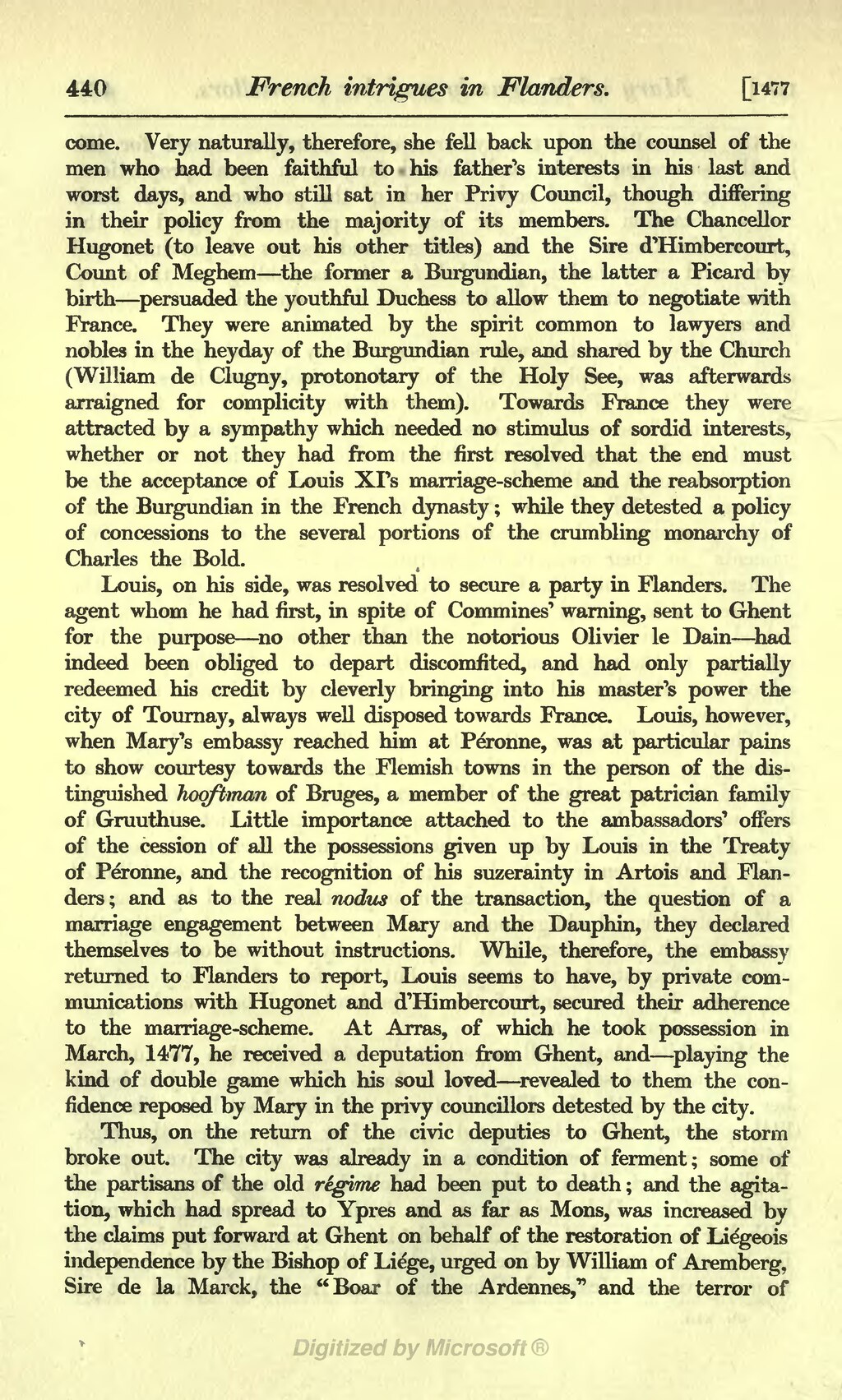come. Very naturally, therefore, she fell back upon the counsel of the men who had been faithful to his father's interests in his last and worst days, and who still sat in her Privy Council, though differing in their policy from the majority of its members. The Chancellor Hugonet (to leave out his other titles) and the Sire d'Himbercourt,' Count of Meghem-the former a Burgundian, the latter a Picard by birth-persuaded the youthful Duchess to allow them to negotiate with France. They were animated by the spirit common to lawyers and nobles in the heyday of the Burgundian rule, and shared by the Church (William de Clugny, protonotary of the Holy See, was afterwards arraigned for complicity with them). Towards France they were, attracted by a sympathy which needed no stimulus of sordid interests, whether or not they had from the first resolved that the end must be the acceptance of Louis XI's marriage-scheme and the reabsorption of the Burgundian in the French dynasty; while they detested a policy of concessions to the several portions of the crumbling monarchy of Charles the Bold.
Louis, on his side, was resolved to secure a party in Flanders. The agent whom he had first, in spite of Commines' warning, sent to Ghent for the purpose-no other than the notorious Olivier le Dain-had indeed been obliged to depart discomfited, and had only partially redeemed his credit by cleverly bringing into his master's power the city of Tournay, always well disposed towards France. Louis, however, when Mary's embassy reached him at Peronne, was at particular pains to show courtesy towards the Flemish towns in the person of the distinguished hooftman of Bruges, a member of the great patrician family of Gruuthuse. Little importance attached to the ambassadors' offers of the cession of all the possessions given up by Louis in the Treaty of Peronne, and the recognition of his suzerainty in Artois and Flanders; and as to the real nodus of the transaction, the question of a marriage engagement between Mary and the Dauphin, they declared themselves to be without instructions. While, therefore, the embassy returned to Flanders to report, Louis seems to have, by private communications with Hugonet and d'Himbercourt, secured their adherence to the marriage-scheme. At Arras, of which he took possession in March, 1477, he received a deputation from Ghent, and-playing the kind of double game which his soul loved-revealed to them the confidence reposed by Mary in the privy councillors detested by the city.
Thus, on the return of the civic deputies to Ghent, the storm broke out. The city was already in a condition of ferment; some of the partisans of the old regime had been put to death; and the agitation, which had spread to Ypres and as far as Mons, was increased by the claims put forward at Ghent on behalf of the restoration of Liegeois independence by the Bishop of Liege, urged on by William of Aremberg, Sire de la Marck, the "Boar of the Ardennes," and the terror of
